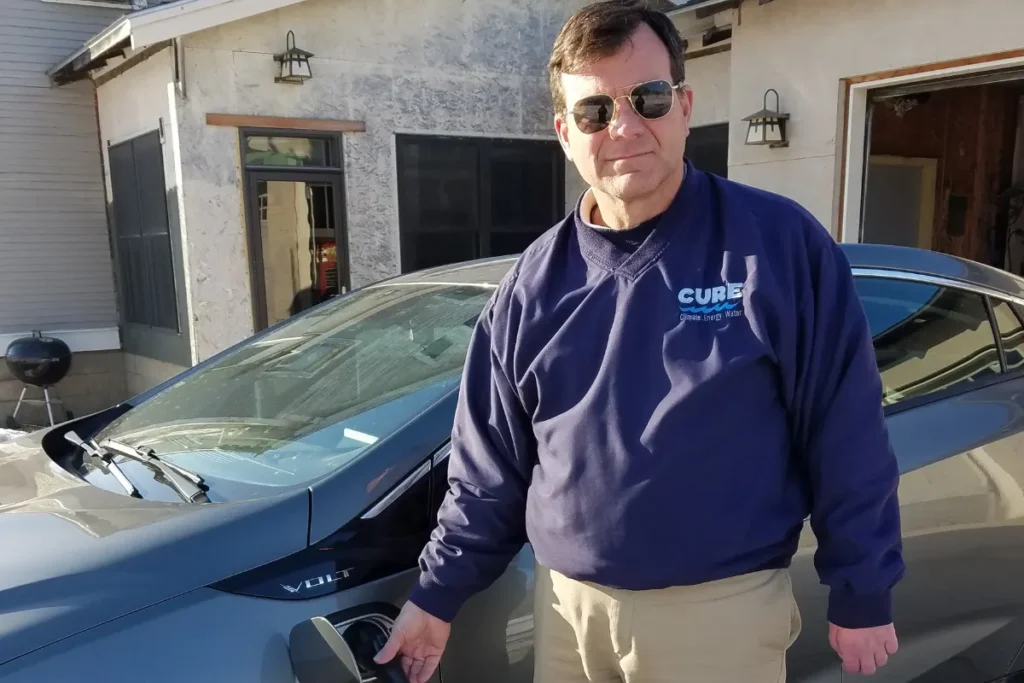A shortened version of this op-ed piece was originally published in the Minnesota Reformer.
Last week, some state senators on the Environment and Natural Resources Policy and Legacy Finance Committee met to introduce a bill that revokes the Minnesota Pollution Control Agency’s (MPCA) authority to set standards for auto emissions. This specifically targets MPCA’s ability to adopt the Clean Cars Standards—a measure that will reduce annual climate pollution in Minnesota by up to 2 million tons, help clean up our air, improve our health, increase vehicle choice, and help all Minnesotans be part of a clean energy future.
These lawmakers staked their argument against a Clean Cars Standard as being harmful to rural Minnesota. Yet the fact is that these lawmakers do not speak for the many rural Minnesotans who want the state to take action on climate pollution and wonder why there are those who, instead of engaging in meaningful dialogue, simply continue to stand in the way of action on what is both the biggest crisis AND the biggest opportunity facing us today. Here are some of the reasons why rural Minnesotans want the Clean Cars Standard.
“It only makes sense to put the highest mileage vehicles where we drive the most miles, rural Minnesota, and the MPCA Clean Car Standard would do just that.”
Long commutes offer an opportunity to save money and reduce emissions
Long commutes are an everyday reality for rural Minnesotans, and a study from the Union of Concerned Scientists found that those same long commutes are what allow rural residents the opportunity for bigger savings. Pete Kennedy, an engineer who lives in Murdock, lives this reality every day. He has a 70-mile round trip daily commute that he makes in his plug-in 2017 Chevy Volt. He wants Minnesota to adopt a Clean Cars Standard, saying, “It only makes sense to put the highest mileage vehicles where we drive the most miles, rural Minnesota, and the MPCA Clean Car Standard would do just that.” Kennedy continued, “The Volt is a plug-in hybrid with a battery for commuter length trips and a gasoline engine for longer trips. It’s not an expensive luxury car. We bought it because it was affordable, and we needed a dependable car that gets us where we need to go at a very low cost.” By adopting the Clean Cars Standard, Minnesota will jumpstart its buildout of electric vehicle charging infrastructure across the state, making it easier for Minnesotans like Pete to drive further.
Rural Minnesotans want more vehicle choice
In rural Minnesota, people are frustrated by how hard it currently is to buy an electric car. Mark Peterson from New London is one of those people. Peterson noted, “I have no intention of buying a gas-powered car again. When I go to buy my next electric vehicle the offerings in Minnesota will make it difficult. The Nissan dealer in Willmar does not carry the Leaf. There is clearly a demand for EVs in Minnesota, but the dealers and manufacturers are intentionally limiting our options.”
Poor air quality is everywhere, not just the Metro
Poor air quality is killing thousands of Minnesotans each year, even in rural Minnesota. This is an often-overlooked reason why MPCA needs to be able to set strong auto emission standards. A 2019 report from MPCA and the Minnesota Department of Health found that rates of death attributable to air pollution were higher in rural areas than cities and was particularly bad in southern Minnesota and along the state’s border with South Dakota.
“The best time to have taken action on energy issues would’ve been 30 years ago. The second-best time is right now”
This quote sounds like a message that could have come directly from Governor Tim Walz when he unveiled his plan for a Clean Cars Standard for Minnesota. But it wasn’t made by him. It was said by Governor Tim Pawlenty in 2007 when he signed Minnesota’s Next Generation Clean Energy Act into law. That’s right, a Republican governor was urging swift action to address climate pollution thirteen years ago. Fast forward to today and we’re looking at stalled progress. Especially in the transportation sector, which is the no. 1 emitter of climate pollution, and is the very reason Governor Walz is pushing ahead on a Clean Cars Standard in the first place.
What happened? Why hasn’t the early bipartisan commitment to addressing climate pollution born better fruit? A look at the current Senate majority’s actions last week gives an inkling of why.
The state Senate committee leaders’ attempt to use the Minnesota Clean Cars Standard as a wedge between populations rather than addressing an issue and solving the problem harms us all.
We shouldn’t be pitted against each other because of geography.
Our neighbors across the state are never our enemy. The state Senate committee leaders’ attempt to use the Minnesota Clean Cars Standard as a wedge between populations rather than addressing an issue and solving the problem harms us all. Minnesotans know that by embracing clean energy technology and uniting against the climate crisis, we all come out ahead. We knew this thirteen years ago, and we know it today. And today, more than ever, we are all One Minnesota.
CURE is a rural-based grassroots organization and part of Minnesotans for Clean Cars, a statewide coalition, advocating for a strong Clean Cars Standard.


